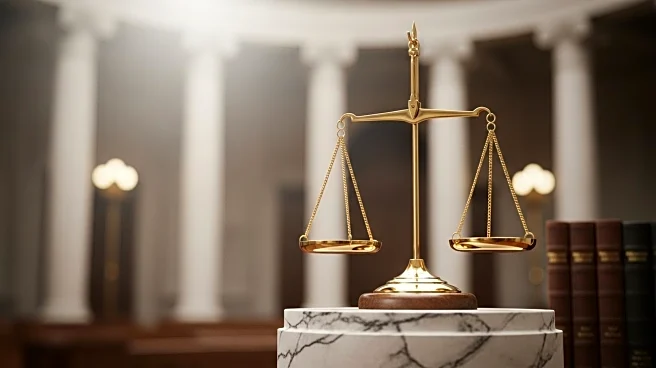What is the story about?
What's Happening?
The U.S. Supreme Court has declined to hear an appeal regarding the practice of prosecutors listening to privileged inmate calls with their lawyers. The case, United States v. Hohn, involved the Kansas City division of the United States Attorney’s Office for the District of Kansas, which had been eavesdropping on calls to lawyers made by incarcerated defendants. The Tenth Circuit Court of Appeals had previously ruled that a defendant must show trial-specific prejudice to establish a Sixth Amendment claim based on such intrusions.
Why It's Important?
The Supreme Court's decision not to hear the case leaves unresolved questions about the balance between prosecutorial practices and defendants' rights to confidential attorney-client communications. This decision may impact future cases involving similar issues, as it leaves the Tenth Circuit's ruling in place, potentially influencing how other courts handle claims of eavesdropping on privileged communications. The ruling could affect the legal strategies of defense attorneys and the conduct of prosecutors across the country.
Beyond the Headlines
The refusal to hear the case may encourage further debate on the ethical and legal implications of eavesdropping on attorney-client communications. It raises concerns about the potential for prosecutorial misconduct and the protection of defendants' rights under the Sixth Amendment. Legal experts and civil rights advocates may push for legislative or judicial reforms to address these issues.















